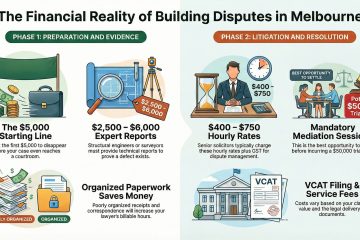
Many personal injury cases are resolved through insurance claims. New York injury lawyers typically charge between one-third and 40 percent of the award as their fee.
The percentage can fluctuate depending on the case’s complexity and other considerations, including any possible special circumstances such as personal circumstances that affect an individual. Below are some reasons for such variations in percentage:
Contingency fees
Contingency fee lawyers do not charge upfront legal fees but instead take a percentage of what’s recovered in your case as their compensation. This fee structure helps injured victims who don’t have the means to cover upfront legal bills.
Contingency fee attorneys typically advance all costs associated with litigation, such as court filing fees, deposition transcript costs and expert witness fees; then payback is deducted from any injury award or settlement agreed to or won at trial.
Contingency fee agreements vary based on the risk and complexity of the case, along with its attorney’s experience and reputation. Some lawyers will ask for a larger portion of recovery than others in order to cover additional risks they assume when taking on riskier cases, and ensure they get compensated if their client doesn’t achieve a favorable settlement outcome.
Sliding fee agreements
Sliding fee agreements provide law firms and solo practitioners with an excellent way to attract clients with differing income levels. Usually, pricing arrangements based on client ability to pay are determined using family size and income level as determined by Federal Poverty Guidelines in either Canada or the U.S.
Advantages of such pricing structures are many. First, they increase access for low-income individuals. Second, it provides law firms with a framework for pricing and scope definition for their work, while also decreasing billable hours from client visits. Finally, such pricing structures may also help clients save time when dealing with billable hours by decreasing billable hours being spent by clients.
However, sliding scale fees typically are not the optimal solution for organizations that bill by the hour. Instead, value-based pricing should be implemented so as to increase price certainty and facilitate decision-making faster; doing so can reduce burnout risks while maintaining financial balance and health.
Lawyer’s experience and reputation
Reputation is of vital importance when negotiating settlements. Judges, jurors and opposing attorneys all listen carefully to what your lawyer says and form opinions based on that content – thus emphasizing why a strong and positive reputation must be upheld at all times by lawyers.
Personal injury lawyers typically operate on a contingency fee basis, meaning they only get paid once they successfully secure financial compensation for their clients. A typical contingency fee ranges between 33-44% of any award money awarded as compensation.
However, some lawyers offer sliding fee arrangements which account for how far along your case has progressed before it was settled. This option may be preferable for clients looking to avoid the standard 33 percent contingency fee; however, all details will need to be discussed and agreed upon before signing a contingency agreement.
Negotiating the percentage
Contingency fee agreements allow attorneys to collect a percentage of compensation awards. This amount varies based on the nature and stage of resolution. For instance, an attorney’s fee would increase should they file suit and prepare it for trial, along with their experience and reputation which impact how much of a percentage they can charge.
Lawyers work on a contingency basis, meaning that they only get paid if their client wins and reaches settlement. Their fee percentage usually ranges between 45%-60% of final award amount; however, good lawyers will always try to keep fees as low as possible while still getting results for clients; in such an instance, negotiations over percentages might occur and reasonable offers accepted only; hence it’s essential that one understands what to expect when hiring personal injury counsel.


